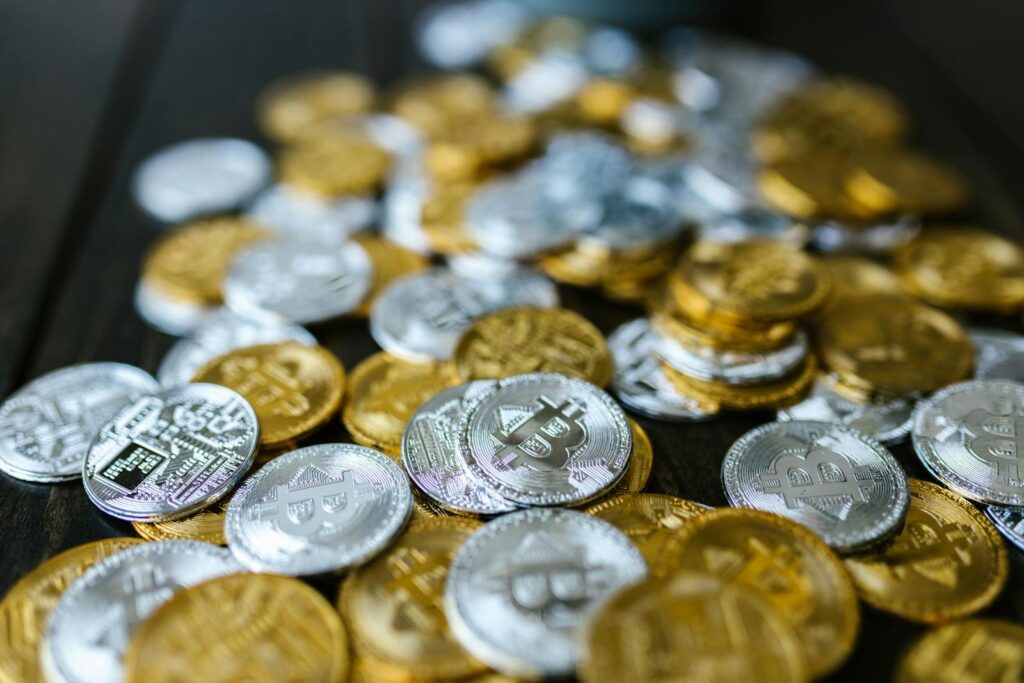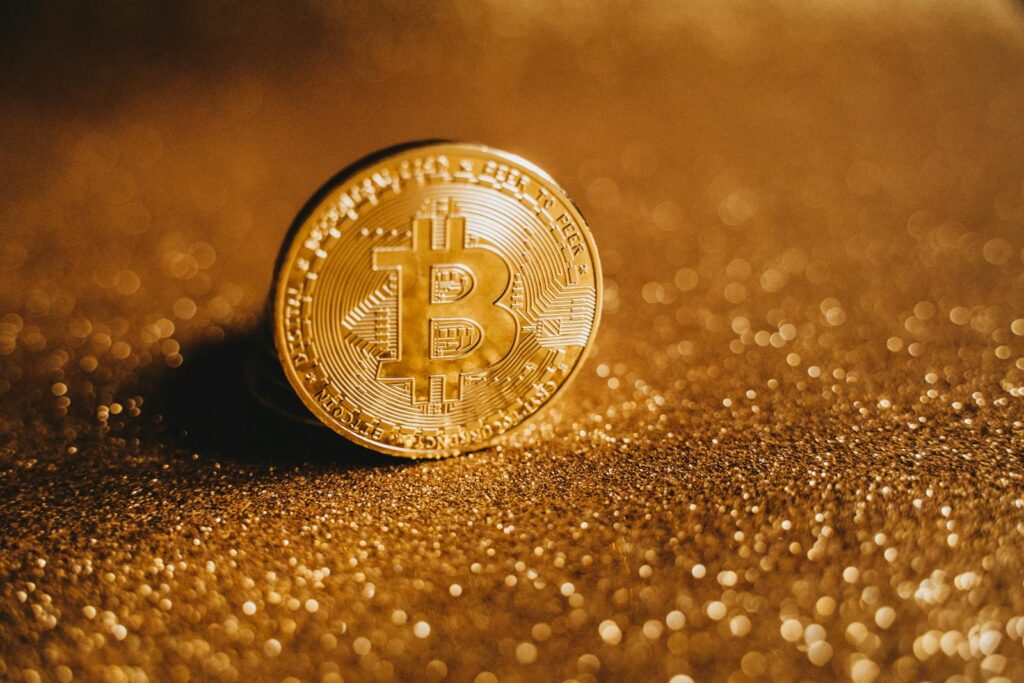In the ever-evolving landscape of digital currencies, selecting the best crypto exchanges can make or break your trading experience. With hundreds of options available in today’s market, understanding the unique features, security measures, and fees associated with each exchange is crucial to ensure a seamless journey into cryptocurrency trading. This comprehensive guide will delve deep into what makes a crypto exchange stand out, compare top platforms, explore security considerations, provide insights for beginners, assess niche markets, and discuss future trends shaping the industry.
Choosing the Best Crypto Exchange: A Comprehensive Guide

Selecting the ideal crypto exchange requires careful consideration of several critical factors, including user experience, fee structure, available cryptocurrencies, trading pairs, and security protocols. Each user’s needs may differ, influenced by their trading habits, investment goals, and technical expertise.
Understanding Different Types of Crypto Exchanges
When discussing the best crypto exchanges, it’s essential first to understand the various types available in the market.
Centralized vs. Decentralized Exchanges
Centralized exchanges (CEXs) are popular due to their user-friendly interfaces and high liquidity. They act as intermediaries between buyers and sellers and generally offer a wide range of cryptocurrencies. Examples include Binance and Coinbase.
On the other hand, decentralized exchanges (DEXs) facilitate peer-to-peer transactions without a central authority, making them appealing for users concerned about privacy and control over their assets. DEXs like Uniswap and PancakeSwap allow users to trade directly from their wallets, providing greater autonomy but often lacking extensive support and ease of use found on CEXs.
Hybrid Exchanges
Hybrid exchanges attempt to bridge the gap between centralized and decentralized exchanges. They combine elements from both worlds, offering the liquidity and user-friendliness of a CEX while utilizing blockchain technology for enhanced security and transparency. These platforms are still emerging, but they show promise for the future of crypto trading.
Factors to Consider in Selecting an Exchange
There’s no one-size-fits-all when it comes to choosing a crypto exchange, but some factors consistently emerge as important across the board.
Fees Structure
Every exchange has its fee model—transaction fees, withdrawal fees, maker/taker fees, and more. These can significantly impact your trading profits, especially for frequent traders. For instance, Binance is known for its competitive fee structure, which can be further reduced by holding its native token, BNB.
Pay attention to hidden fees, as well. Some platforms may advertise low trading costs but charge high withdrawal fees or impose currency conversion charges.
User Experience and Interface
A well-designed interface can enhance your trading experience, particularly for newcomers. Beginner-friendly platforms should prioritize intuitive design and provide educational resources to help users navigate their services. On the contrary, advanced traders might appreciate features like charting tools, technical indicators, and more complex order types.
Supported Cryptocurrencies
The diversity of cryptocurrencies available on an exchange is vital for traders looking to diversify their portfolios. While major exchanges typically support thousands of coins, smaller ones may focus on niche markets. It’s worth noting that some traders prefer exchanges that provide access to lesser-known tokens due to their potential for explosive growth.
Liquidity
Liquidity refers to how easily you can buy or sell an asset without causing significant price fluctuations. High liquidity typically enables faster trades at stable prices, which is essential for day traders and those dealing in large volumes. Top exchanges like Binance and Coinbase offer substantial liquidity, reducing slippage and ensuring smoother trading experiences.
Top Crypto Exchanges Compared: Fees, Security, and Features

With countless platforms to choose from, let’s take a closer look at some of the best crypto exchanges currently dominating the marketplace. This section compares notable exchanges based on fees, security features, user experience, and supported cryptocurrencies.
A Breakdown of Major Players
Here, we will analyze some of the most sought-after exchanges today.
Binance
- Fees: Binance is renowned for its low trading fees, usually starting at 0.1% for spot trading. Users can further reduce fees by utilizing BNB.
- Security: The exchange employs multiple layers of security, including two-factor authentication (2FA), withdrawal whitelist, and withdrawal confirmation emails. In addition, Binance provides SAFU (Secure Asset Fund for Users), which offers insurance for users’ funds in case of a security breach.
- Features: Binance stands out with its extensive range of supported cryptocurrencies and trading pairs. Its advanced trading options cater to seasoned traders, while the mobile app ensures convenience.
Coinbase
- Fees: Coinbase has a more straightforward fee structure but can be higher compared to competitors. The platform charges a spread of around 0.5% on trades plus other transaction fees.
- Security: With a strong emphasis on security, Coinbase stores 98% of customer funds in cold storage and offers insurance against hacks. Additionally, users can enable 2FA for added protection.
- Features: Ideal for beginners, Coinbase provides an intuitive interface alongside educational resources and tutorials. However, it doesn’t offer as many altcoins as Binance.
Other Notable Mentions
Kraken
- Fees: Kraken is appreciated for its transparent fee structure, with fees ranging from 0.16% – 0.26%, depending on the trading volume.
- Security: The platform prioritizes security through features such as dark pool trading, robust encryption, and regular audits.
- Features: Kraken presents a broad array of cryptocurrencies, margin trading options, and advanced charting tools, catering to varied trader preferences.
Bitfinex
- Fees: Bitfinex operates on a maker-taker fee structure, allowing users to pay lower fees when providing liquidity to the market. Fees average around 0.1% for makers and 0.2% for takers.
- Security: Bitfinex has experienced breaches, leading to heightened security measures post-hack, including 2FA and a focus on diligence in safeguarding user funds.
- Features: Aimed at professional traders, Bitfinex offers sophisticated trading options, including margin and derivatives trading.
Niche Exchanges Worth Considering
While major players dominate the market, niche exchanges can provide unique advantages.
KuCoin
KuCoin ranks as an up-and-coming exchange offering a plethora of altcoin options, often listing tokens before other major exchanges do. It also benefits from lower trading fees and promotional events.
Gemini
Focused on regulatory compliance and user safety, Gemini offers a secure environment with user-friendly features. Although it supports fewer coins than larger exchanges, it appeals to investors seeking peace of mind.
Security Considerations When Selecting a Crypto Exchange

Security is paramount when navigating the world of cryptocurrencies; your choice of exchange can impact your overall safety and trustworthiness.
Importance of Security in Crypto Trading
The decentralized nature of cryptocurrencies means that once a transaction is made, it cannot be reversed. Thus, using a secure exchange, implementing personal security practices, and having a contingency plan is vital in safeguarding your investments.
Analyzing Security Protocols
Before registering on any exchange, consider the following security measures:
Two-Factor Authentication (2FA)
2FA adds an additional layer of security by requiring not only a password but also a second piece of information (often a temporary code sent to your mobile device). Always activate this feature when available to fortify your account.
Cold Storage vs. Hot Wallets
Reputable exchanges generally store the majority of their cryptocurrencies in cold wallets (offline storage), minimizing risks of hacks. In contrast, hot wallets are connected to the internet and are therefore more vulnerable to attacks. Understand how your chosen exchange manages fund storage.
Assessing Historical Breaches
Research the history of exchange hacks to determine how often a platform has faced security breaches. While no exchange is immune, frequent incidents may indicate poor security management.
Insurance Policies
Some exchanges offer insurance policies for their customers in case of hacks or breaches. It could be a comforting factor if a breach occurs. Always check whether your chosen platform has provisions for protecting users’ funds.
Beginner’s Guide to Navigating Crypto Exchanges
For newcomers to the crypto space, starting to trade can feel overwhelming. Below is a detailed guide to help you navigate through the process.
Getting Started with Your First Exchange Account
The initial steps of registration can vary slightly among exchanges, but the fundamentals remain consistent.
How to Register
Typically, you will provide basic personal information, including your name, email, and sometimes phone number. Following that, you’ll verify your identity by uploading identification documents—a necessary step for regulatory compliance.
Completing the KYC Process
Know Your Customer (KYC) processes minimize fraudulent activity by verifying user identities. Expect to submit documentation like government-issued IDs or proof of address during registration.
Making Your First Deposit
Once registered, funding your account is the next logical step. Each exchange provides different deposit methods, including bank transfers, credit/debit cards, and even PayPal in some cases.
Choosing Your Payment Method
Evaluate each payment method’s pros and cons. Bank transfers may take longer but can often incur lower fees compared to credit card deposits, which are typically instantaneous but might attract higher fees.
Placing Your First Trade
After funding your account, you’re ready to start trading! Most exchanges have simple interfaces that allow you to select the cryptocurrency you wish to buy or sell, along with options to set market or limit orders.
Understanding Basic Trading Terms
Familiarize yourself with essential terms like ‘order book,’ ‘market orders,’ ‘limit orders,’ and ‘trailing stops.’ Knowledge of these concepts will empower you to make informed decisions when trading.
Beyond the Big Names: Exploring Niche Crypto Exchanges
While major exchanges may dominate the headlines, a wealth of niche exchanges cater to specific audiences, offering unique opportunities for investors.
Advantages of Using Niche Exchanges
Niche exchanges can present advantages that larger platforms may overlook.
Specialized Listings
Many niche exchanges focus on specific sectors within the cryptocurrency market, such as decentralized finance (DeFi) or non-fungible tokens (NFTs). Traders looking to gain exposure to emerging sectors may find these platforms advantageous.
Community Engagement
Smaller exchanges often foster a sense of community among users. Engaging with fellow traders can provide invaluable insights and lead to increased learning opportunities.
Examples of Promising Niche Exchanges
SushiSwap
As a decentralized exchange (DEX) primarily focused on DeFi, SushiSwap empowers users to trade tokens while earning rewards through yield farming. It has gained traction due to its community-driven model.
Huobi
Although Huobi is a larger exchange, it has an extensive selection of little-known altcoins, enabling traders to explore unique investment opportunities beyond traditional cryptocurrencies.
Future Trends and Innovations in Crypto Exchange Technology
As the cryptocurrency ecosystem evolves, exchanges must adapt to remain relevant and efficient. Here are some anticipated trends shaping the future of crypto exchanges.
Integration of AI and Machine Learning
Artificial Intelligence (AI) and machine learning will likely play a more prominent role in enhancing user experiences. By analyzing user behavior, exchanges can offer personalized services, helping traders optimize their strategies.
Enhanced Security Features
As cyber threats become increasingly sophisticated, exchanges will need to adopt advanced security technologies. Innovations like biometric authentication (fingerprint/face recognition) and multi-signature wallets may become standard practice to bolster security protocols.
Cross-Platform Trading
Interoperability among different blockchains could pave the way for seamless trading across platforms, allowing users to trade assets from various blockchains on a single exchange. This functionality would not only streamline transactions but also expand the market’s liquidity.
Growth of Decentralized Exchanges
As the demand for privacy and autonomy grows, DEXs are likely to see further adoption. Enhanced user interfaces, improved liquidity, and advanced features like cross-chain swaps could make DEXs a serious contender against traditional exchanges.
Conclusion
Navigating the world of cryptocurrencies begins with choosing the right exchange, and understanding the best crypto exchanges available is paramount to maximizing your trading experience. From assessing user-friendly interfaces to prioritizing security and evaluating fees, each element plays a crucial role in your decision-making process. As innovation continues to shape the industry, staying informed and adaptable will be key to successfully traversing the dynamic landscape of cryptocurrency trading. Remember, whether you’re a beginner or a seasoned pro, knowledge and vigilance are your best allies in this exciting financial frontier.


